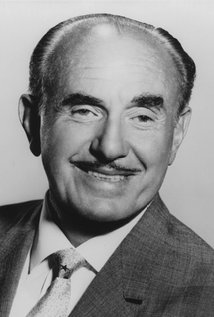Get Today in Masonic History into your Inbox. Sign up today for one of our email lists!
Need an article for your Trestleboard/Newsletter see our Use Policy
Jack Leonard "J. L." Warner Passes Away

Today in Masonic History Jack Leonard "J. L." Warner passes away in 1978.
Jack Leonard "J. L." Warner was a Canadian-born American movie mogul.
Warner was born in London, Ontario on August 2nd, 1892. When he was two years old his family moved back to Baltimore, Maryland where the family had first settled when they fled Poland due to antisemitism. In 1896 the family moved to Youngstown, Ohio. Warner spent much of his formative years in Youngstown. Warner described his neighborhood as one of the roughest of the time. There were gangs and at one point in time Warner claimed to be a member of one of the gangs. He also referred to the fact there were 1 or 2 murders in his neighborhood every Saturday night. In his teens Warner entered vaudeville as a singer.
In 1907, when Warner was just fifteen he entered the entertainment with his brothers. By 1917, at the age of 25 Warner is in California trying to setup a film exchange company which was used for distribution. In 1918 the brothers produced the film My Four Years in Germany about the atrocities of World War I. This helped the Warner's to form their studio where Jack was the head of production.
In 1923, Warner was asked by his brother to make a series of films with a canine co-star, Rin Tin Tin. At first Warner was reluctant until, it is said, he met Rin Tin Tin. Warner once said Rin Tin Tin "seemed to display more intelligence than some of the Warner comics."
Jack had little regard for the actors working in the studio. He eventually banned all actors from the executive dining room stating he had no interest to look at actors while he was eating. This led to many conflicts with actors and the studio over Jack's career. One actress who actual fled to London to get out of her contract with Warner was Bette Davis. Later she defended Jack stating once he learned she was pregnant his entire demeanor changed from a man focused on making money to one who was warm and protective. She also defended him when accusations of lecherous behavior came to light. "No lecherous boss was he! His sins lay elsewhere. He was the father. The power. The glory. And he was in business to make money." Davis said.
In the years leading up to World War II, the Warner's and Jack particularly began making anti-Nazi films. This at a time when America isolationism was the trend. Jack and the studio were highly criticized for those movies especially when Confessions of a Nazi Spy came out. The German Ambassador to the United States made a formal complaint about the film and Nazi dictator Adolph Hitler was said to have been enraged by the film. Pro isolationist congressmen publicly stated the Warners should not be going after a "friendly nation."
After the war, the studio was making cartoons. Despite the legendary characters people see today with Warner Brothers, Jack wanted nothing to do with cartoons. In a meeting with the employees from the cartoon department, Jack admitted he had no idea where to find the cartoon studio. Jack worked to sell off much of the cartoons made before 1948. Those cartoons went on to make millions.
In the mid 1950's Harry Warner the older brother decided to sell of the Warner Brothers Studio. Unknown to Harry, Jack went about making a syndicate to buy the studio and put Jack in charge. When the truth was discovered the already strained relationship between Jack and Harry came to end. A few years later when Harry passed away Jack was asked for his thoughts on his brother's passing to which he replied, "I didn't give a shit about Harry."
Since the late 1940's Jack was fighting against television. At first he wanted nothing to do with the new medium. This was made worse by the fact he felt televisions actors were even worse than film actors. By the 1960's he had began embracing television and the studio began making programming. Warner retired as the head of Warner Brothers in 1969.
In the 1970's Jack continued to produce movies independently. One of his finally films was 1776. The film was less than successful. With the back drop of the Vietnam War most Americans did not want a pre-republic civics lesson. Warner worked hard though to promote the film. In his first and only television interview on the Merv Griffin show, Warner went on a tirade about "pinko communists."
By 1973, those close to Warner saw he was becoming disoriented easily. When he became lost in the building where his offices were, he decided to retire for good. In 1974 he suffered a stroke and was left blind. He passed away on September 9th, 1978 from a heart edema.
Warner was a member of Mount Olive Lodge No. 506 in California.
This article provided by Brother Eric C. Steele.

